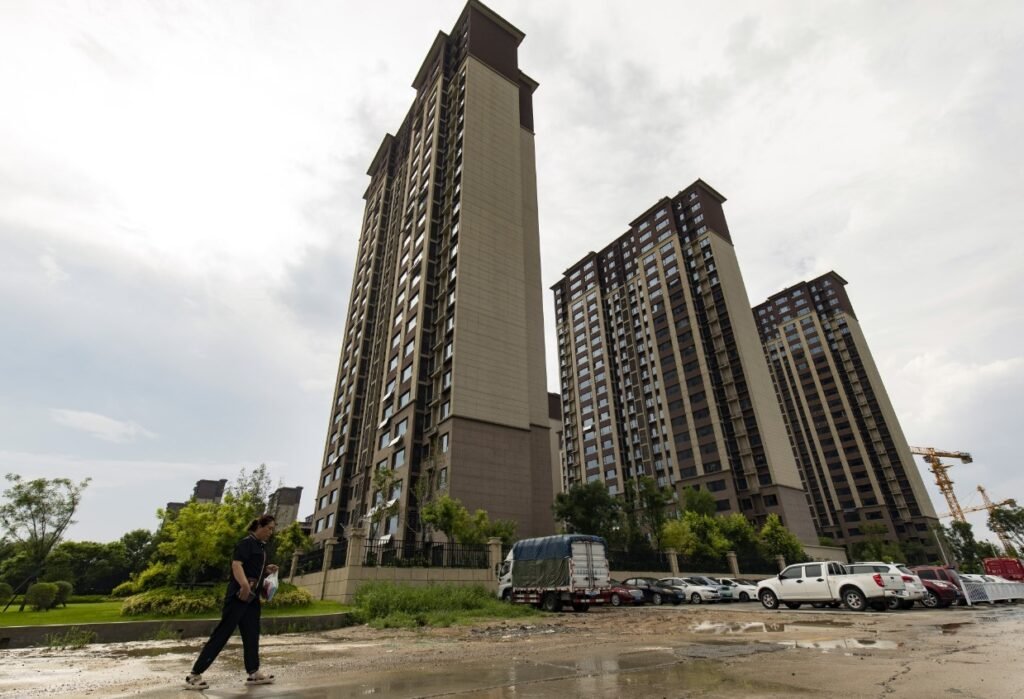Country Garden Holdings Co., once China’s largest property developer by revenue, is facing a severe liquidity crunch that could lead to a debt default in the coming weeks. The company reported a record net loss of 48.9 billion yuan ($7 billion) in the first half of 2023, compared with a profit of 612 million yuan in the same period last year. The developer warned of the possibility of default and raised doubts about its ability to continue as a going concern.
Country Garden is one of the few major homebuilders that have avoided default since Beijing introduced a “three red lines” policy in 2020, which set limits on debt ratios and cash reserves for the highly leveraged sector. However, the company has been struggling to cope with the slump in sales, rising costs, and regulatory pressure that have hit the industry hard.

The company missed two dollar bond payments last week, totaling $1.5 billion, and has until early September to repay them or face default. The company also announced plans to raise $34 million by issuing shares to pay down a loan. Country Garden’s total liabilities amounted to 1.4 trillion yuan ($215 billion) as of June 30, 2023, according to its interim report.
The property crisis threatens to spill over into other sectors of the economy
The troubles of Country Garden and other developers have raised concerns about the stability of China’s financial system and the impact on the broader economy. The property sector accounts for about a quarter of China’s gross domestic product and is a major source of employment and consumption.
The crisis has also left millions of homebuyers in limbo, who have paid hefty deposits for unfinished apartments. Many of them have staged protests and demanded refunds or compensation from the developers. Some have also boycotted mortgage payments or sued banks for lending to insolvent developers.
The government has tried to contain the fallout by injecting liquidity into the banking system, easing some restrictions on property financing, and facilitating debt restructuring for some developers. However, analysts warn that these measures are not enough to solve the underlying problems of excess supply, weak demand, and high leverage in the sector.
Country Garden’s woes contrast with its ambitious expansion plans
Country Garden was founded in 1992 by Yang Guoqiang, a former farmer who became one of China’s richest men. The company grew rapidly by focusing on low-cost housing in smaller cities and rural areas, where demand was strong and competition was less fierce. The company also diversified into other businesses, such as hotels, restaurants, robotics, agriculture, and education.
In recent years, Country Garden had set its sights on overseas markets, especially in Southeast Asia and Australia. The company’s flagship project was Forest City, a $100 billion mega-development on four artificial islands near Singapore. The project aimed to create a futuristic city with green buildings, smart technology, and eco-friendly transportation.
However, Country Garden’s expansion plans were hampered by regulatory hurdles, political risks, and environmental concerns. Forest City faced opposition from Malaysia’s government over land rights, immigration issues, and tax incentives. The project also faced criticism from environmentalists for damaging marine ecosystems and contributing to climate change.
Country Garden’s woes are a stark reminder of the challenges and uncertainties facing China’s property sector, which has been a key driver of the country’s economic growth for decades. As the crisis deepens, the fate of millions of homebuyers, investors, creditors, and workers hangs in the balance.
